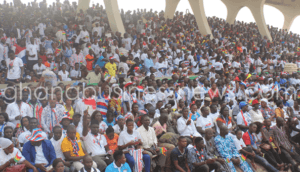Over half a billion people in Africa can’t prove their identity – World Bank
 About one billion people around the world are unable to prove their identity, with over half living in Africa – the World Bank’s Identification for Development initiative estimates.
About one billion people around the world are unable to prove their identity, with over half living in Africa – the World Bank’s Identification for Development initiative estimates.
Identification for Development (ID4D) is an initiative by the World Bank Group that helps countries realize the transformational potential of digital identification. It is a cross sectoral initiative that works closely with countries and partners to enable all people to exercise their rights and to access services, including to provide identification to the estimated one billion people currently without one.
According to UNICEF, nearly two-thirds of children in Africa under the age of five do not have a birth certificate. Among the 99 countries included in the 2017 ID4D-Findex survey, Africa is home to 9 of the 10 countries with the lowest identity coverage, and 7 of the 10 countries with the widest gaps in coverage between men and women.
“Half of the one billion ‘invisible’ people without a formal identity are in Africa. No ID means no access to health, education, social protection and other vital services.” said Kristalina Georgieva, World Bank CEO and Co-Chair of the ID4D High Level Advisory Council. “We must work together to create inclusive and trusted digital ID systems that can unlock economic opportunities for the world’s most vulnerable people.”
To address the problem, African leaders, the World Bank Group, the United Nations, and other development partners have met on the sidelines of the UN General Assembly for the African Leaders Roundtable on Identification for Development to catalyze collective action, boost financial support, and harness innovation for the digital identification and civil registration agenda in Africa.
The World Bank Group estimates it will take $6 billion to meet Africa’s digital identification and civil registration needs. Nearly $1 billion is being mobilized for digital identification and civil registration projects across 30 countries – 23 of which are in Africa. ID4D is also providing global advisory services to many countries, including on design, laws and regulations and public engagement, with a special emphasis on inclusion, data protection and privacy, and technology and vendor neutrality, underpinned by the Principles on Identification for Sustainable Development.
“Digital identification can play an important role in achieving the sustainable development goals. It can enable the world’s poorest and most vulnerable people to gain access to critical services, from education to healthcare and financing, while also advancing their legal and political rights,” said Amina Mohamed, Deputy Secretary- General of the United Nations and Co-Chair of the ID4D High Level Advisory Council at the roundtable table discussion.
If the most critical issues in digital identification are tackled and digital identification systems widely adopted in Africa, they will offer long term dividends for financial inclusion, improved governance, the empowerment of women and girls, trade and migration for regional integration, and enable governments to invest in human capital by increasing access to health and education services, and social safety nets for the poor, the Bank said.
By Bismark Elorm Addo
